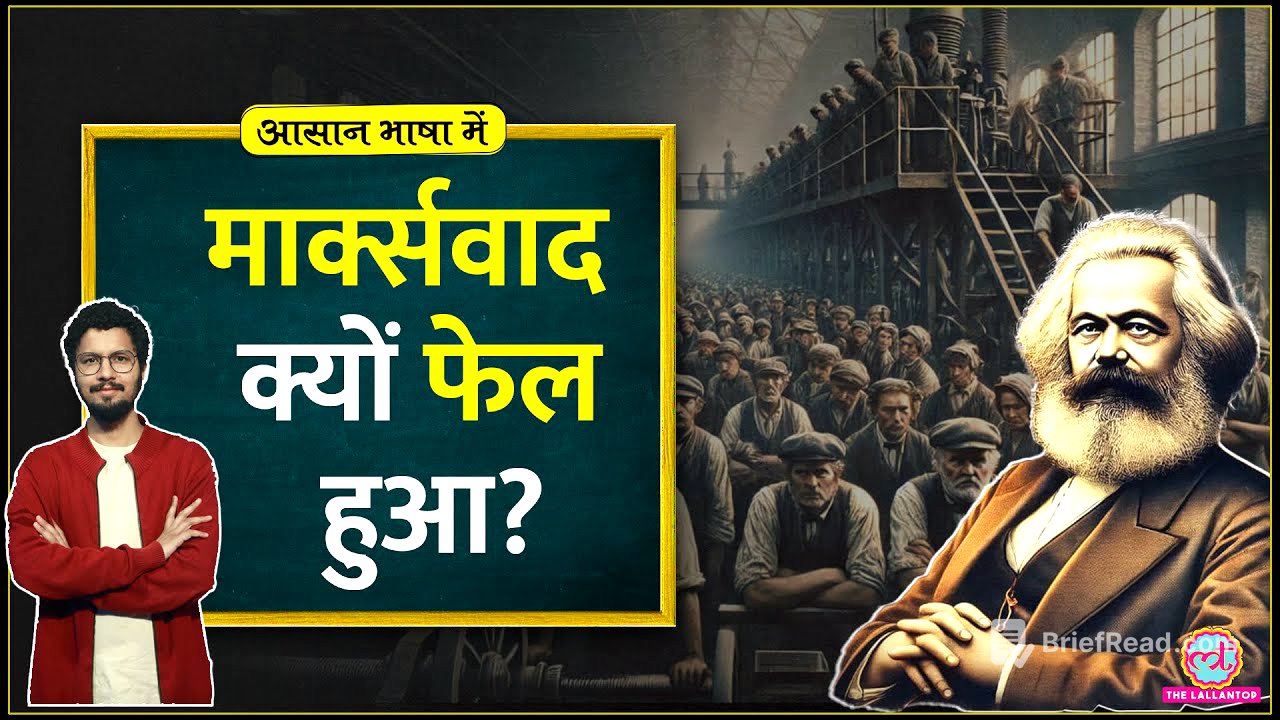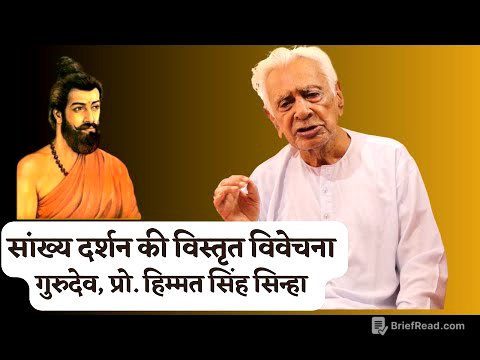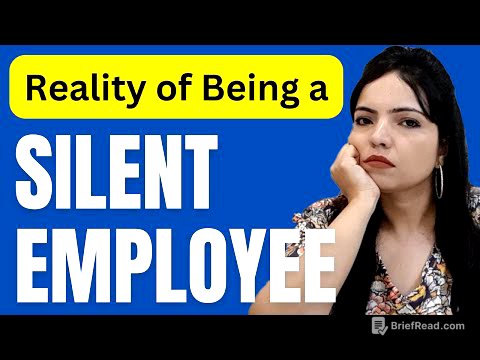TLDR;
This video explains Karl Marx's philosophy, known as Marxism, and its key concepts. It explores the historical context of Marx's ideas, rooted in the Industrial Revolution, and discusses the core pillars of his theory: historical materialism, alienation, and class struggle. The video also addresses criticisms of Marxism and reasons why the revolution predicted by Marx did not occur as he envisioned.
- Karl Marx's philosophy, Marxism, is explained in simple terms.
- The video discusses the historical context of Marx's ideas, the Industrial Revolution.
- Core concepts of Marxism: historical materialism, alienation, and class struggle.
- Criticisms of Marxism and reasons for the failure of the predicted revolution are addressed.
Introduction to Karl Marx and Marxism [0:00]
The video introduces Karl Marx, a philosopher, economist, sociologist, and political analyst whose ideas significantly impacted global politics. Marx's philosophy, known as Marxism, challenged the existing social and economic order. Despite a decline in the global acceptance of Marxist ideas and electoral setbacks for Marxists, understanding Marxism is essential due to its historical impact, particularly in the 20th century when it shaped the political systems of numerous countries. The video aims to explain the core principles of Marxism and the reasoning behind them, exploring why Marx's ideas sparked widespread debate and offered a new perspective on societal issues.
Historical Context: The Industrial Revolution [2:01]
To understand Marx's ideas, it's crucial to examine the context of the 19th-century Industrial Revolution in Europe. This period marked a significant shift in power and wealth, moving away from landowners to those who owned factories and machines. The invention of machines led to increased production and a migration of workers from rural areas to cities in search of employment. While factory owners (the capitalist class) benefited from this development, workers also gained opportunities and wages. However, Karl Marx viewed these changes negatively, leading to the development of his philosophical framework.
Key Concepts: Mode of Production [3:28]
The "mode of production" refers to the way goods are produced in a society. Marx divides this into two components: "forces of production," which includes the technology and skills used in production (e.g., machines, tools, skilled labor), and "relations of production," which describes the relationships between owners and workers (e.g., the owner taking the profit and paying the worker a wage). Marx argues that the mode of production determines not only the goods produced but also the relationships between people. He believed that the problems of capitalism stem from this mode of production.
Historical Materialism [4:32]
Historical materialism is the idea that history can be understood through an economic lens. Marx believed that changes in the mode of production drive significant societal changes. Initially, humans were focused on basic survival, living in a "communist society" where everyone was equal. The development of agriculture led to surplus food and the desire to control resources, resulting in the formation of tribes and social hierarchies. As forces of production improved, those who owned land (kings and lords) benefited the most, while those who worked the land remained laborers. This process concentrated resources in the hands of a few, creating a divide between the owners (bourgeoisie) and the workers (proletariat).
Class Struggle [7:02]
Class struggle arises from the division of society into classes based on their position and access to resources. Marx divides society into two main classes: the bourgeoisie (those who own resources) and the proletariat (those who do not). According to Marx, conflict between these two classes is inevitable because the owners want to maximize profit by minimizing wages, while the workers want better pay and working conditions. Marx argued that the workers are often exploited in this struggle because they lack the power and resources of the owners.
Alienation [8:18]
Alienation refers to the detachment workers feel from their labor and the products they create under capitalism. In pre-industrial systems, a worker would handle the entire production process, from raw materials to the final product, and reap the benefits. However, in industrial production, workers specialize in one task, contributing only a small part to the final product. As a result, they do not own the product they helped create and often cannot even afford to buy it. This leads to a sense of detachment and lack of fulfillment, causing workers to feel alienated from their work and society. Marx believed that this alienation could drive people to seek solace in religion, which he saw as an opiate that justified their suffering.
The Inevitable Revolution [10:16]
Marx believed that the exploitation and alienation inherent in capitalism would eventually lead to a revolution. The bourgeoisie's pursuit of profit would drive them to reduce wages, further impoverishing the workers and increasing alienation. Eventually, the workers would recognize their shared plight and, under strong leadership, overthrow the capitalist system. This revolution would lead to a communist society where resources are shared equally. However, the video notes that this revolution has not occurred as Marx predicted, or when it has, as in Russia and China, it has not resulted in the communist utopia he envisioned.
Why the Revolution Didn't Happen [11:54]
Several reasons are offered for why the Marxist revolution has not occurred as predicted. Sociologist Max Weber argued that Marx's class concept was too simplistic, as the growth of industries created diverse jobs with varying requirements and levels of social acceptance. Additionally, government welfare programs in many countries have reduced social and economic inequality, mitigating the discontent that could lead to revolution.
Criticisms of Marxism [13:10]
Critics argue that Marx's theory is too focused on economic factors and ignores other sources of power, such as political influence, social status, and force. For example, in India, caste-based inequality is not solely based on economics. Another criticism is that Marx's vision of a communist society disregards merit and individual talent. In a truly equal society, there would be no incentive for individuals to excel or innovate. Despite these criticisms and the decline of Marxist movements in many countries, Marx's ideas continue to be debated and analyzed for their insights into capitalism and social inequality.









